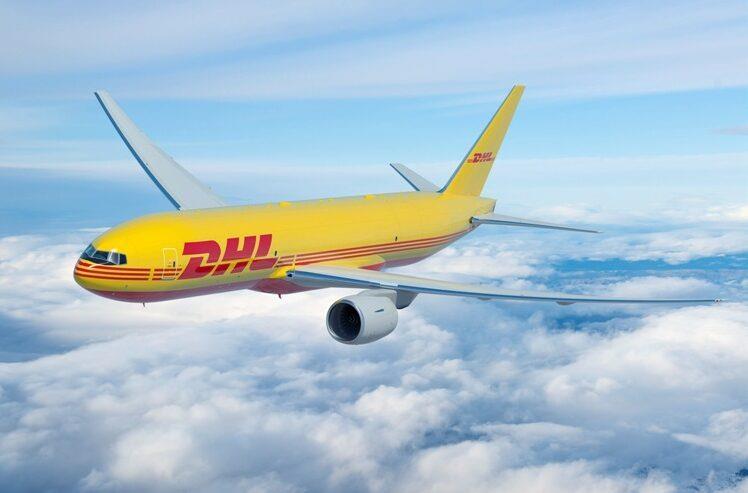Discover your all-in-one digital freight platform
Escape the chaos of calls, faxes, and endless emails. Step into a connected world where suppliers, shippers, customs, ports, and more unite on a single platform for seamless, contextual collaboration
Being an IATA accredited agent we have access to over 121 airlines, this includes scheduled freighters and passenger aircrafts.
With our LCL service, you can ship as little or as much as you like, weekly consoles are our business and get you yours.
We provide comprehensive road freight services, covering both Less-Than-Truckload (LTL) and Full-Truckload (FTL) options.
To meet your requirements we have access to vehicles of all sizes from small vans to artic with 24/7 availability and live tracking.
Escape the chaos of calls, faxes, and endless emails. Step into a connected world where suppliers, shippers, customs, ports, and more unite on a single platform for seamless, contextual collaboration
Our solutions are tailored to fit your business and its unique workflows, offering real-time order tracking from placement to delivery. Stay informed with up-to-date order statuses, track progress, and receive timely notifications for key milestones, whether shipping by air, sea, or road.

For packages requiring urgent delivery that can be achieved by road to destinations in the UK or mainland Europe, you can rely on Intercargo to deliver direct in the fastest time possible.

Get to know more about values, knowledge and experience, quickly download our company profile.


Trump delays tariff increases and threatens 200% pharma levy
US president Donald Trump has delayed the implementation of country-specific tariffs until August in order to give countries time to continue negotiations but has threatened a huge levy on imports of pharma products. In an executive order published earlier this week, the White House said the tariffs on a range of countries would now come into effect on 1 August. They had been due to start on 9 July. The start of the country-specific tariffs is likely to put air cargo volumes to the US under pressure, so the delay should be a relief for the industry. The tariffs were first proposed in early April but were later delayed for 90-days, giving countries until 9 July to negotiate with the US. Countries included in the tariffs that are confirmed to have been given a temporary reprieve are Japan (facing a rate of 25%), South Korea (25%) and South Africa (30%). Other countries' tariff rates can be found here. "The president may send some more letters in the coming days and weeks," the White House said. In the meantime, rates will remain at 10%. Vietnam and the UK were also included in the initial list of countries, but both have since reached an agreement with the US. Most recently, Vietnam negotiated a tariff rate of 20% while transhipments going through the country will pay a 40% levy. The country-specific tariffs are separate from those on China, which currently stand at 30% but are due to ramp back up from 12 August if an agreement cannot be reached. Pharma threats Elsewhere, Trump has announced a 50% tariff rate for copper imports into the US and threatened a 200% tariff on pharma imports into the country, which are currently exempted from the duty hikes. At this stage it is unclear when - or if - the US will formally announce the pharma tariffs and when they could take effect. The director general of the UK's Chartered Institute of Export & International Trade, Marco Forgione, said that tariffs with a rate of 200% would "reverberate through global pharmaceutical supply chains". "UK exporters are deeply integrated into US healthcare delivery, from innovative treatments to specialist manufacturing inputs. Any move to isolate or penalise those partnerships risks triggering a counterproductive scramble to localise production, which would raise costs and delay access to lifesaving treatments on both sides of the Atlantic," said Forgione. "Pharmaceutical supply chains are also incredibly complex, and any tariff could carry real global consequences." According to The Observatory of Economic Complexity (OEC), the US imported $212bn of pharmaceutical products in 2024, making the product type the 5th most imported into the country. The fastest growing origins for Pharmaceutical products imports in the US between 2023 and 2024 were: Ireland ($14.3bn), Singapore ($5.81bn), and Belgium ($5.66bn), the OEC figures showed.
Source: aircargonews.net
Read more
Avia partners with DHL Express on SAF
Avia Solutions Group has partnered with DHL Express to use sustainable aviation fuel (SAF) to reduce Scope three emissions from its international shipments. The ACMI (Aircraft, Crew, Maintenance, and Insurance) provider has signed up for DHL's GoGreen Plus service, which is supported by SAF contracts with BP, Neste, and World Energy. GoGreen Plus was launched by DHL Express in 2023 and uses CO2-insetting (reducing carbon output directly within companies' own supply chains) and SAF to help its customers reduce emissions associated with their freight. DHL GoGreen Plus can be used by DHL customers for voluntary emissions reporting based on the "book and claim approach". For DHL shipments, Avia has already reduced GHG emissions by 12.61% through the GoGreen Plus Basic Model. This translates to 30.6 tonnes of emissions between January and April 2025, said the Group. The partnership between Avia and DHL Express involves multiple Avia subsidiaries across different sub-sectors. "As a global aviation leader operating across six continents, we recognize our responsibility to contribute to more sustainable industry practices," said Jonas Janukenas, chief executive of Avia Solutions Group. "By utilizing SAF for our large-scale logistics needs, we can prove the viability of this approach and nudge other aviation companies to take bold steps in order to minimise their environmental impact." Mindaugas Pivoriunas, managing director at DHL Express Lithuania, added: "We are proud to support Avia Solutions Group in their commitment to reducing GHG emissions across their extensive network. "The aviation industry's path to net-zero requires collaborative efforts, and the wide adoption of GoGreen Plus shows the willingness of world-leading aviation players to fully embrace more sustainable practices."
Source: aircargonews.net
Read more
American Airlines Cargo adopts a nimble approach in response to ...
American Airlines Cargo is adopting a nimble approach to the market as the outlook for the remainder of the year remains uncertain. Speaking to Air Cargo News at the recent Air Cargo Europe show, American Airlines Cargo vice president of commercial Roger Samways said that volumes had held up relatively well so far this year despite the trade turmoil caused by the imposition and subsequent suspension of tariffs. Samways said there were two reasons for the positive performance. Firstly, the on/off nature of the tariffs had resulted in several waves of front loading as companies looked to move goods quickly while duties were at a lower level. Secondly, cargo flows have changed rather than disappeared completely. For instance, American has noticed a surge in demand from Latin America while volumes from Asia Pacific have been up and down depending on the tariffs. He also added that American Airlines' exposure to China had been limited as only 26% of passenger flights to the country that existed pre-Covid have been reinstated. Meanwhile, demand for essential perishables and pharmaceuticals had remained strong. However, the outlook is more difficult, Samways said. "At some point in time it is going to become more expensive to move goods into the US and I think manufacturers are trying to protect against that [with front loading] but you can't see a continuation of these sorts of volumes unless there is an increase in consumer spending and the general macroeconomic conditions at the moment suggest that probably isn't going to happen," he said. On the supply front, Samways said that cargo capacity has been dynamic, with freighter aircraft switching from the transpacific to Latin America and the transatlantic in line with the implementation of tariffs. He added that much of that freighter capacity has returned to the transpacific, but it is something the airline is "watching very closely". A flexible approach To combat the uncertain market conditions, Samways said that American would be flexible with its approach to the market. "One thing we have learnt as an industry over the past few years is that we have to remain flexible and we have to be prepared to adapt to what the market throws at us," he said. The cargo division has a couple of tools in its arsenal that allow it to be flexible in terms of its network: its road feeder operation and interline agreements. "Germany is a huge market, but we have about three times as many flights out of Spain and we have a significant amount of business out of Paris, so we are utilising trucks to bring business from Germany to our hubs in Paris, Madrid and Barcelona and connecting to the US," said Samways. He added: "Interline has long been an important part of our offering, but it has grown substantially in terms of importance in the last few years. Last year was a record - about 15% of our total revenue for the last six months of the year was interline related." He said interline agreements allow it to offer origins and destinations that it doesn't serve directly, such as parts of the Middle East, Africa and the Indian Subcontinent, and also offer increased capacity in markets where it is capacity-constrained. "We have an interline team that has been building stronger relationships with a core group of carriers that have the same approach to interline as we do." "We have an interline team that has been building stronger relationships with a core group of carriers that have the same approach to interline as we do," he said. Samways explained that around 85% of American Airlines Cargo's interline business is with 12 partners that can provide a high level of service and visibility. "As we have established regular flows of business with a relatively small number of partners, that supports more consistent operational processes, so you are moving very consistent flows of cargo, transferring to the same interline partner in the same market," he added. Investing to stay ahead The cargo business has also continued to make investments to enhance its facilities. For instance, it is expanding its Dallas Fort Worth facility, with work already underway to enhance both the warehouse and the office space. In London, American moved into a new facility in November. The new building offers a total of 120,000 sq ft, a 15,000 sq ft increase compared to the original combined facilities, and also nearly doubles the capacity for storage of PMC pallets. There are also more landside and airside doors, X-ray machines and build stations at the new building - all of which enable faster acceptance and delivery as well as build-up and break-down efforts. In addition to the facility move, American has also updated how it transmits operational updates digitally with its ground handler in London, WFS. The combined effort enables a new digital connection between the WFS system, CargoSpot, and American's iCargo platform. This is going to be rolled out at a number of other stations in the coming months, Samways added. American was also CEIV pharma accredited at its New York JFK and Luis Muñoz Marín International Airport facilities last year and as part of the process, expanded its New York CRT and 2-8 rooms, while it is also in the process of expanding its cooler capabilities in Miami. In total, American operates more than 30 CEIV or GDP-certified locations around the world, including Miami International, Amsterdam Airport Schiphol (AMS), Dublin Airport (DUB), Frankfurt Airport (FRA), Paris Charles De Gaulle Airport (CDG), Rio de Janeiro Galeão International Airport (GIG) and Shanghai Pudong International Airport (PVG).
Source: aircargonews.net
Read more

This website uses cookies and similar technologies, (hereafter “technologies”), which enable us, for example, to determine how frequently our internet pages are visited, the number of visitors, to configure our offers for maximum convenience and efficiency and to support our marketing efforts. These technologies incorporate data transfers to third-party providers based in countries without an adequate level of data protection (e. g. United States). For further information, including the processing of data by third-party providers and the possibility of revoking your consent at any time, please see your settings under “Consent Preferences” and our